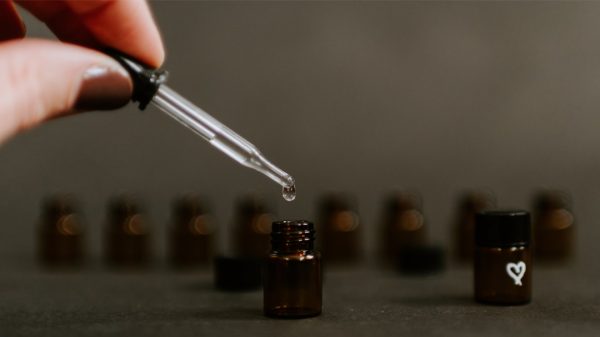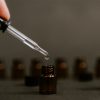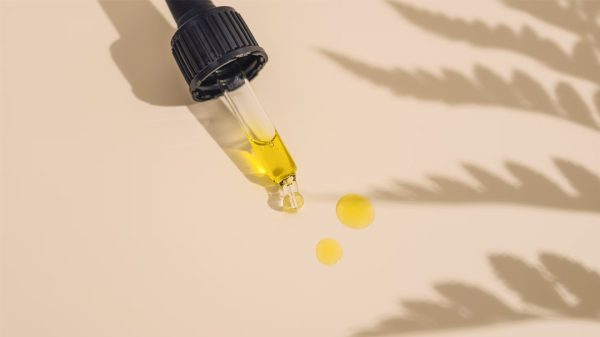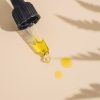Cannabidiol, a compound known as CBD, has caught the eyes of the public for its numerous health benefits and therapeutic uses. Unlike the more popular one, CBD is not psychoactive, i.e. it is not the one that produces the “high” associated with the use of marijuana. As a consequence, people often register the variety of slight effects which make them feel well instead.
What, however, CBD does to you? This is one of the common inquiries of the newcomers to the world of CBD products. This experience can be different from one person to the other. It is attributed to factors like the dosage, the consumption method, and the individual’s body chemistry. Typically, users would state that they feel a calming and relaxing effect, which helps to reduce anxiety.
In this introduction, we will be looking at how the different aspects of CBD may have different effects when it comes to your mental and physical state, ensuring that you are well informed about what to expect.
What Is CBD?
Cannabidiol (CBD) is a natural compound that exists in hemp plants. Different from tetrahydrocannabinol (THC), which is the most famous cannabinoid for its psychoactive properties, CBD does not make people high. That is the reason why it is used as a basis for psychic properties. It comes mainly from the hemp variety of the cannabis species, which has high CBD content and low THC. The interaction of this molecule with the endocannabinoid system (ECS) is a crucial element for the regulation of vital physiological processes such as mood, pain sensation, appetite, and sleep.
Scientific and anecdotal data indicate that CBD has a wide range of health benefits, such as reducing anxiety, alleviating pain, improving sleep, and lowering inflammation. These qualities make it a wonderful option for people with predispositions to many diseases who are searching for a natural treatment. Available in various forms, including oils, tinctures, capsules, edibles, and topical creams, CBD gives room for options according to one’s preferences and needs. The more it gains traction, scientists are looking at ways CBD can be used and how effective it is. Recently, the subject has been trending in discussions of natural health and wellness solutions.
What Does CBD Feel Like?
The experience of using CBD is different for every individual, as this is largely due to the variation in body chemistry, dosage, and the form in which it is consumed. While THC and CBD are psychoactive, the latter does not cause a euphoric or high feeling like the former. Unlike the strong feeling of alertness, the users often report a subtle experience of calmness after the ingestion of CBD. What is reflected in this is a decrease in anxiety levels, peacefulness and/or a more focused state of mind, but without the impairment of mental functions.
A number of people say that their physical problems, such as pain or inflammation, have decreased, and thus, they are experiencing a state of relaxation and convenience. This is especially true for those with chronic pain syndromes or inflammation-related illnesses where CBD plays a role in possibly adjusting the pain level and reducing the swelling.
CBD has positive implications in improving the quality of sleep when people are found to have trouble sleeping by promoting a restful night’s sleep, not by sedating effects, but by reducing causes of sleep problems such as anxiety or pain.
One should know that CBD usually causes a person to experience relief as being free from certain symptoms rather than experiencing a particular effect. The lack of anxiety, pain, or discomfort activates a beneficial and therapeutic effect for many users, endorsing CBD’s potential as a therapeutic agent.
How Does CBD Work in the Body?
The body interacts with CBD through the endocannabinoid system (ECS), an extremely complex network of receptors and neurotransmitters that regulates homeostasis. The ECS is responsible for a number of physiological processes, such as pain perception and mood, . starvation, and even immune response together with psychological processes. CBD extracts help communicate with the system, although they do not bind to the important endocannabinoid receptors, CB1 and CB2, as THC does.
In contrast, CBD does not work directly but by increasing the body’s own endocannabinoid modulation. It prevents the breakdown of anandamide, a natural endocannabinoid known as the “bliss molecule,” thus increasing levels in the brain and creating a sense of well-being. CBD binds to many other non-cannabinoid receptors as well as ion channels. For example, TRPV1 interacts with factors that promote pain, regulate body temperature, and regulate inflammation.
Moreover, CBD acts on serotonergic 5-HT1A receptors, plus it can be used in this way, which provided it with both its anti-depressant and anxiolytic features. Serotonin, the transmitter, is associated with mood control. To create many beneficial effects on the body, such as decreasing anxiety and pain levels and improving mood, these compounds are duplicated.
In these intricate pathways, CBD provides various points of systemic impact; they present CBD’s ability as a very versatile therapeutic agent.
What Are The Best Ways to Take CBD?
CBD Oil
CBD oil is definitely the most acclaimed method of consuming CBD for its multifunctionality and simplicity. Either when under the tongue, it is directly absorbed by a fast bloodstream or when added to food and beverages. The sublingual administration route ensures that CBD is absorbed directly into the bloodstream to achieve faster results. CBD oil can be dosed easily by both beginner and experienced users, which is suitable for those who want to adjust the therapeutic experience to their taste.
CBD Gummies
CBD-infused gummies provide consumers with an easy-to-use and inconspicuous way to consume CBD gummy that offers exact dosing, unlike other CBD products, which have the taste of hemp extracts. These edibles are ideal for people who want to carry them when away from home and have a slow release of CBD into the body as they are digested. This method is recommended for those individuals who find it enjoyable and convenient to use to add CBD to their daily regimen.
CBD Edibles
Besides the gummies, there are different categories of CBD edibles that contain a wide array of food products, including chocolates, cookies, and drinks. They are better in terms of taste and, thus, find it easier for people to use CBD as a part of their daily diet. CBD edibles are comparable to gummies in a way that they provide a long-term effect, albeit the effects wouldn’t be immediate as it has to be digested.
Sublingual
The sublingual approach covers putting CBD oil or tinctures under the tongue and keeping it in the mouth for 90 seconds or more before swallowing. This technique enables CBD to be a mouth-dissolving product that allows you to absorb CBD directly into the bloodstream through mucous membranes, which gives you immediate effect. Sublingual administration is effective for patients who want faster relief of symptoms that are not associated with the wait time for edibles.
CBD Capsules
CBD capsules offer the convenience of a straightforward and hassleless approach to CBD consumption. They are perfect for patients who hate the complication and wish to get more precise and reproducible doses. Capsules may take longer to get into effect in comparison with the two methods of sublingual/inhalation but promise easy integration into one’s daily CBD regimen for a slow, steady release of CBD throughout the day.
The Different Types of CBD
Full-Spectrum CBD
Full-spectrum CBD is the form that contains all phytochemicals that are found in the cannabis plant, including CBD, terpenoids, flavonoids, and other cannabinoids such as THC. THC concentration, on the other hand, is too low, below 0.3%, so people do not feel high. This appraisal is given to the other form of CBD that the “entourage effect” supports as a theory that cannabis compounds have greater effects when they work in unison than individually. Whole-plant CBD is the first choice of those who are looking for the diverse results that the cannabis plant can offer, such as better pain management, anxiety reduction, and anti-inflammatory properties.
Broad-Spectrum CBD
Full-spectrum CBD is comparable to broad-spectrum CBD because the latter contains multiple cannabis plant compounds as well, but the rest undergoes additional processing to eliminate all the traces of THC. This choice is suitable for those who would like the positive effect but not the THC in their system. With its naturally high level of CBD and zero THC, broad-spectrum CBD appears to be of interest to THC-sensitive users and also those who are afraid that the compound could show up in drug tests yet who still want to benefit from the entourage effect of CBD and other cannabis compounds.
CBD Isolate
The CBD Isolate is the purest form of CBD with no addition of other cannabinoids, terpenes, or other substances and a purity level from 99% to 100%. It is being processed to remove all other cannabinoids, terpenes, and plant materials while only CBD is left. This delivery method is appropriate for those who need moderate to high doses of CBD or for people who simply want only CBD and without THC. CBD isolate is flavorless and odorless; thus, it can fit perfectly in many forms and types of consumption, such as sublingually, edibles, tinctures, and as an additive to foods and drinks. Besides this, consumers who look for precise dosing or those who are sensitive to other cannabis compounds are also strongly likely to gravitate toward edibles.
How Long Does it Take to Feel the Effects of CBD?
The time that it takes to start feeling the effects of the administration of CBD varies a lot as it all depends on the method of administration, individual metabolism, dose, and the particular product used.
Inhalation (Vaping/Smoking): Therefore this method bypasses the digestive system and leads the CBD to the bloodstream through the lungs. Hence, it is among the most efficient ways to feel its effects – usually within just minutes. Individuals will experience the possible reduction of anxiety and pain immediately after use. This method may also not have long-term effects.
Sublingual (Under the Tongue): CBD oil or tinctures can be administered sublingually (placing it under the tongue) for rapid absorption into the bloodstream via this route. It could take as little as 15 to 30 minutes for users to start experiencing the use. This way the smokers target the specific locations of pain. The method works for those who want quick relief without intake.
Oral Consumption (Edibles/Capsules): After it is ingested, CBD must first pass through the digestive tract and get through the liver before reaching the bloodstream, thus resulting in a delayed onset of action. In most cases, it takes from half an hour to 2 hours to sense the effects of CBD if used by mouth. This technique has the benefit of minimizing the frequency of treatments as it can bring effect for a longer period of time.
Topical Application: CBD applied on lotions, creams, and balms directly affects localized relief. Astonishingly, the onset may differ up to 15 minutes or over an hour, depending on the product’s type – spray or gel, and on the skin’s permeability. It is the best method to deal with the specific points of discomfort.
Factors such as body weight, level of metabolism, and the concentration of CBD play a very big part in how quickly and efficiently these effects manifest.
How Much CBD Should You Take?
The CBD dosage has a number of factors affecting it, such as patient weight, the disease being treated, and the concentration of CBD in the product. There is no standard dosage, and usually, the dosage is set as a low dose, and it is recommended to increase it until the desired effect is achieved gradually.
For starters, 5-20 mg per day could be a nice beginning, but one must also be careful not to overdo it as it may cause trouble. By watching the outcomes of a few days or weeks, you can have an idea of how your organism behaves when exposed to CBD. However, if the beginning dosing does not give the working result, it can be gradually increased in small steps under a doctor’s supervision.
Insurance of this is that one should meet the healthcare provider, especially for those having underlying health conditions and taking other drugs in order to avoid any negative interaction with other medications.
For specific conditions, research and anecdotal evidence may suggest starting dosages. For example, for chronic pain, some users might find relief with dosages between 20 to 40 mg per day, while others may require higher doses.
FAQs
Does CBD Get You High?
No, unlike THC, theCBD effect is not psychoactive and does not get you high. Unlike THC, the main psychoactive ingredient in marijuana, which produces a “high” feeling, CBD is not a psychoactive ingredient. This basically means that it is a non-narcotic substance and is an ideal option for those who want the marijuana plant to heal without the altered state of mind that can cause other such effects.
Is CBD Legal?
The legality of CBD ranges by jurisdiction. In the US, CBD derived from hemp (which is 0.3% or less THC) is legalized by Federal laws after the 2018 Farm Bill. The laws of the state, on the other hand, may not be in line, as some states are rather strict and impose restrictions on the sales and use of CBD products. Laws may differ from country to country, so it’s good to know what rules are laid down in the country of purchase and use before buying or using CBD.
Does CBD Have THC?
CBD products could contain traces of THC, especially full-spectrum CBD, which involves all of the hemp plant compounds. Nevertheless, the THC concentration in legally produced CBD products in the US must be at most 0.3% to meet federal laws, which is an amount that would never cause any psychoactive effect. Broad Spectrum CBD and CBD isolate products are made to ensure that the THC is completely removed in the development process.
Does CBD Make You Feel Relaxed?
Yes, a lot of the users confirm that CBD makes them feel calm. CBD is appreciated for its ability to ease the conditions of anxiety and stress, resulting in the feeling of serenity and tranquility without being “high” from THC. This is what makes CBD quite a favorite among people who want to reduce their stress and enhance their overall feeling of health.
Does CBD Help With Pain?
CBD is to be used for pain relief. It is thought to affect the body’s endocannabinoid system, which facilitates the decrease in inflammation and changing of pain perception that can help in preventing chronic pain and arthritis and also reduce muscle pain and other kinds of discomfort. Even though research is going on, many people claim to get pain-effective relief from CBD products.
Conclusion
Unlike THC, CBD draws attention to the wellness world as the substance capable of delivering the therapeutic effects of THC without THC’s psychoactive effects. Hemp-derived CBD works with the body system in endocannabinoids, helping modulate mood, ease pain, and promote homeostatic balance in general. Its non-intoxicating characteristic makes it perfect for those seeking relief from anxiety, pain, and other medical conditions minus the euphoric syndrome. CBD is available in many forms: oils, gummies, edibles, and capsules. This functionality caters to many customers’ tastes and needs. While the legal status of this substance, which many countries have already legalized, especially from the hemp derivatives with low THC levels, continues to increase in popularity as one of the natural remedies. Though research is in progress and CBD is evolving, it remains important in the developing conversation on health and well-being.

































































